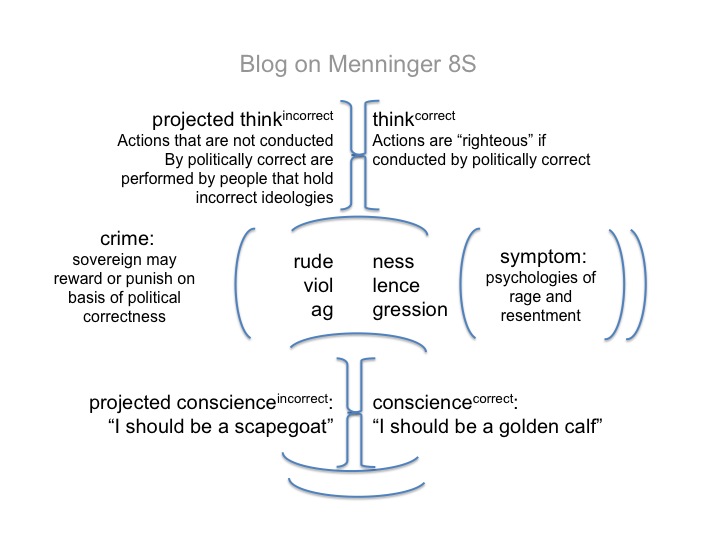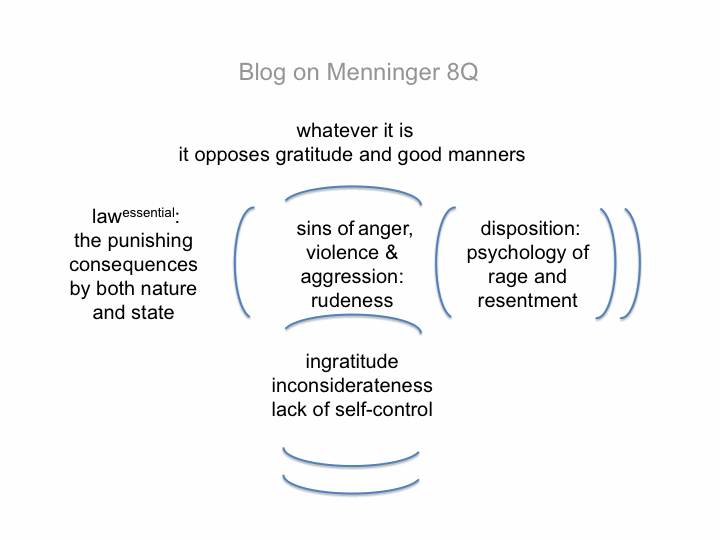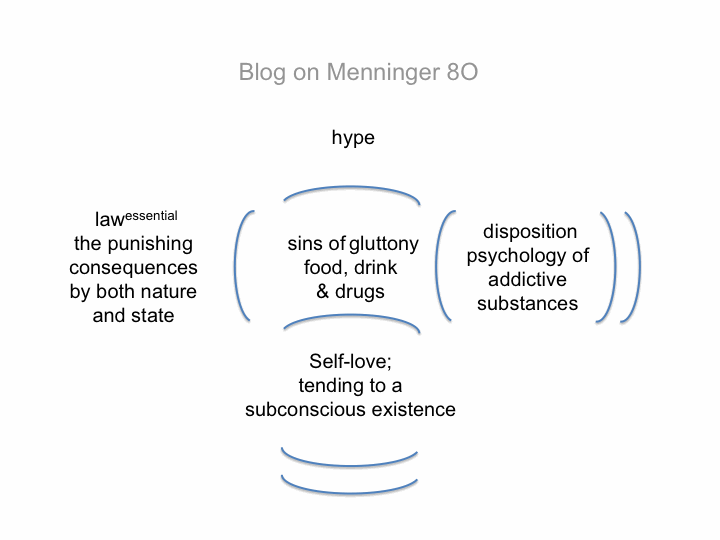Thoughts on Whatever Became of Sin? By Karl Menninger MD (1973) 8Y
What is the vertical axis for “sins of envy, greed and avarice”?
Menninger took care to point out that “sins of envy” are also “sins of self-aggrandizement”. A loss of conscience accompanies self-aggrandizement. A loss of conscience also goes with a single-minded lust for possessions, a pre-occupation with possessions, not being able to say “enough”, and a fascination with status and the excitement of “getting away with it”.
In short, greed, envy and avarice are not about “fairness”.
The thinkgroup that puts “sins of envy, greed and avarice” into context is the opposite of “the divine consolations of the simple life”. Perhaps, we should call this thinkgroup the “the ungodly consolations of the anything-but-simple life” – or – maybe we can call it “the idolatry of money”.



